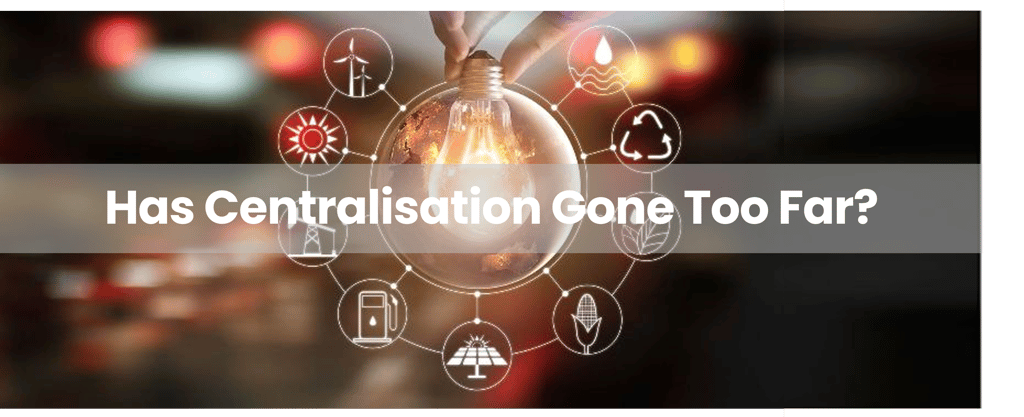Has Centralisation Gone Too Far?
In this blog we talk about how attending the LEMA Summit in October will help you understand how local systems can help to better balance the efficiencies and vulnerabilities of centralised energy grids. Click here to read more.
Simon Anderson
7/31/20242 min read


On the 19th July a faulty update to a critical piece of software wreaked havoc across multiple international platforms. Ironically, the purpose of the software update was to prevent such occurrences! What it has shown though is the danger of centralisation - having all our eggs in one (IT) basket, or a relatively small number of baskets.
This rang alarm bells for many as we came face to face with the obvious: our increasing dependence on digital platforms. With cybercrime growing, it is only a matter of time before our vulnerability is once again exposed, be it accidently or deliberately.
Which got me thinking about the centralisation of electricity:
In August 2003, over 55 million people in North and Mideastern United States and the Canadian province of Ontario were impacted by a widespread power outage caused by a software bug in an alarm system. It had huge impacts across water supply, transportation and communication as well as the more obvious services.
On 16th June 2019, 48 million people across Argentina, Uruguay and Paraguay suffered a large-scale power outage caused by what authorities termed an “operational misbehaviour”.
On 9th August 2019, over 1 million customers across England, Wales and parts of Scotland were affected by a major power outage caused by a lightning strike. Although power was restored within 45 minutes the knock-on impacts were significant.
This year on 15 May due to Russian attacks, Ukraine was forced to begin rolling blackouts, disconnecting entire districts of the capital from the power grid.
A centralised power grid is hugely efficient, but also has major vulnerabilities. Is there a way to better balance these efficiencies and vulnerabilities?
The answer is yes - through grid-supported local shared energy systems.
Decomposition is the process of breaking down a large problem into smaller elements that are easier to manage. A grid that is a system of systems: i.e. the main grid supporting multiple grid edge local energy systems, could deliver far greater resilience. It could also deliver other benefits such as lower energy bills, accelerated adoption and connection of LCTs, and thus a significant contribution to the government’s goal of a net zero grid.
Too good to be true?
LEMA Summit 2024
Join us at the Local Energy Markets Alliance Summit at Leeds Castle in Kent on 1st and 2nd October to find out more. With limited spaces available be sure to secure your ticket now by clicking the link below.
